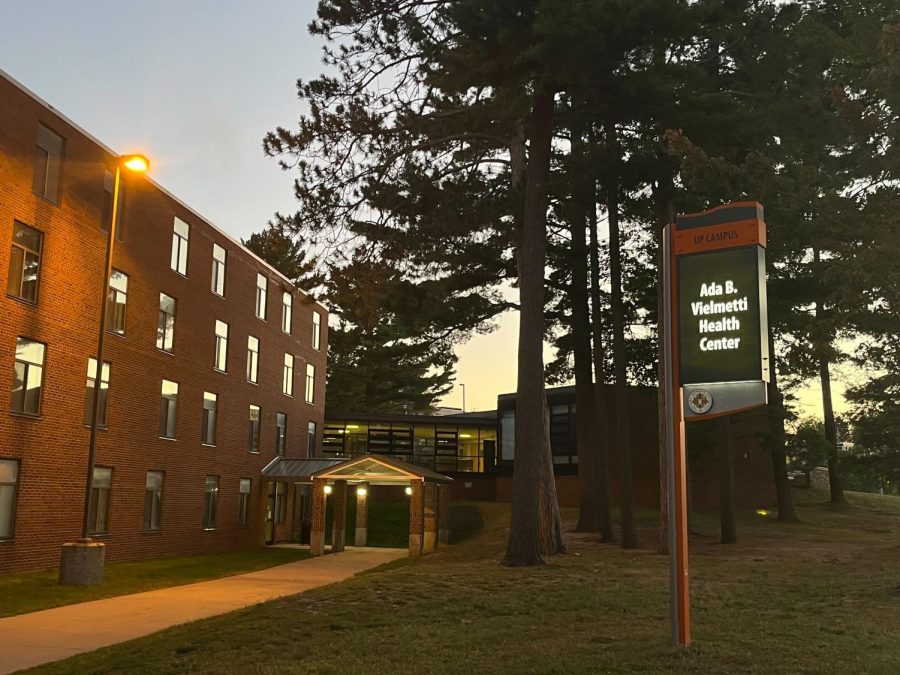Monkeypox: What to know
HEALTHY CAMPUS — NMU’s Health Center offers various services to the campus community, including monkeypox testing.
September 9, 2022
COVID-19 was the largest collective trauma event that has happened in this lifetime. Many people have reported that their lives have been permanently changed because of the ongoing pandemic. With monkeypox contributing to the United States’ constant state of “survival mode” seen in its people, a significant amount of misinformation and myths have circulated.
As of Sept. 6, the current reported number of cases of monkeypox, or MPV, in the United States is a little under 20,000. In Michigan, that number is 190. There have only been 15 reported fatalities globally, with one of those cases being in Texas.
Dr. Christopher Kirkpatrick, NMU’s medical director, said, “The last time we spoke with the health department they had not seen any confirmed cases in the Upper Peninsula which is good. And, I have not heard that it has changed.”
MPV was originally observed in 1958 by a group of researchers observing monkeys. Therefore, it was named monkeypox. However, the first human case was not recorded until the 70s and had not circulated much outside of central and western Africa.
According to the CDC, MPV is a disease that causes a rash that often looks like pimples or blisters on the skin and mucous membranes.
“This one usually causes fatigue and a little bit of a headache when it first starts, and then you are looking for these characteristic lesions on the skin’s surface,” Kirkpatrick said.
Some other common side effects include flu-like symptoms such as respiratory issues, muscle aches, fever, etc. Those who catch MPV are contagious until the scabs fall off and new skin has grown over.
“Some of the initial media reports you have to be careful about that because it is not an accurate representation [of MPV],” Kirkpatrick said. “It is just [transmitted through] skin to skin contact and that can affect any person on any particular group.”
A popular misconception about MPV is that it is a disease that is only impacting queer populations, specifically those who participate in anal sex. While MPV does disproportionately hurt minority communities, as did COVID, it is not exclusively found in them.
However, according to NPR, the World Health Organization presented a study that found out of 3,900 people that contracted monkeypox, 90% of them acquired the disease through sexual interaction.
“It was first found in people that were having sexual contact, but it is not technically a sexual transmitted disease,” said Kirkpatrick.
Regardless, catching MPV is incredibly rare in a public setting. The chances of touching a contaminated surface or contracting it from a face-to-face interaction are low.
In order to protect oneself, there are a few steps that need to be taken. As a primarily sexually transmitted disease, it is important to practice safe sex and to get vaccinated.
Kirkpatrick stated that students who are concerned about having monkeypox are encouraged to reach out to their primary care provider or contact NMU’s health center as they do have the equipment to test for MPV if necessary.
For those seeking vaccination resources, the Marquette County Health Department is offering MPV vaccinations to those who meet the criteria.



























